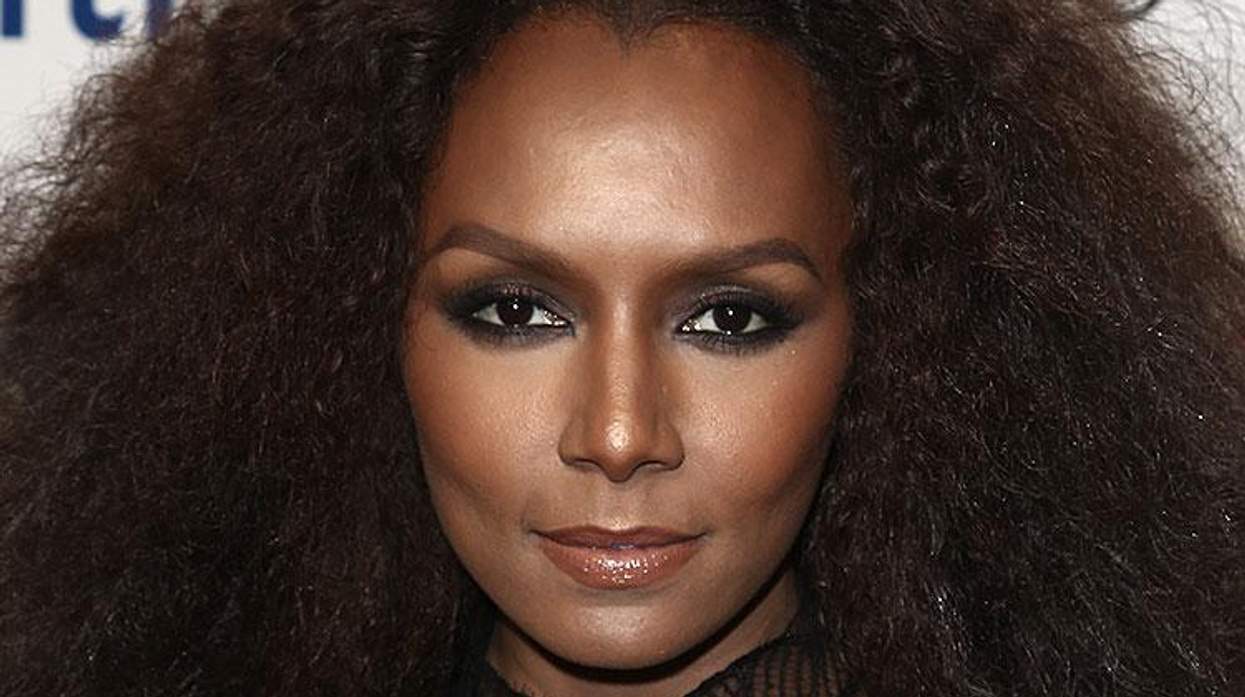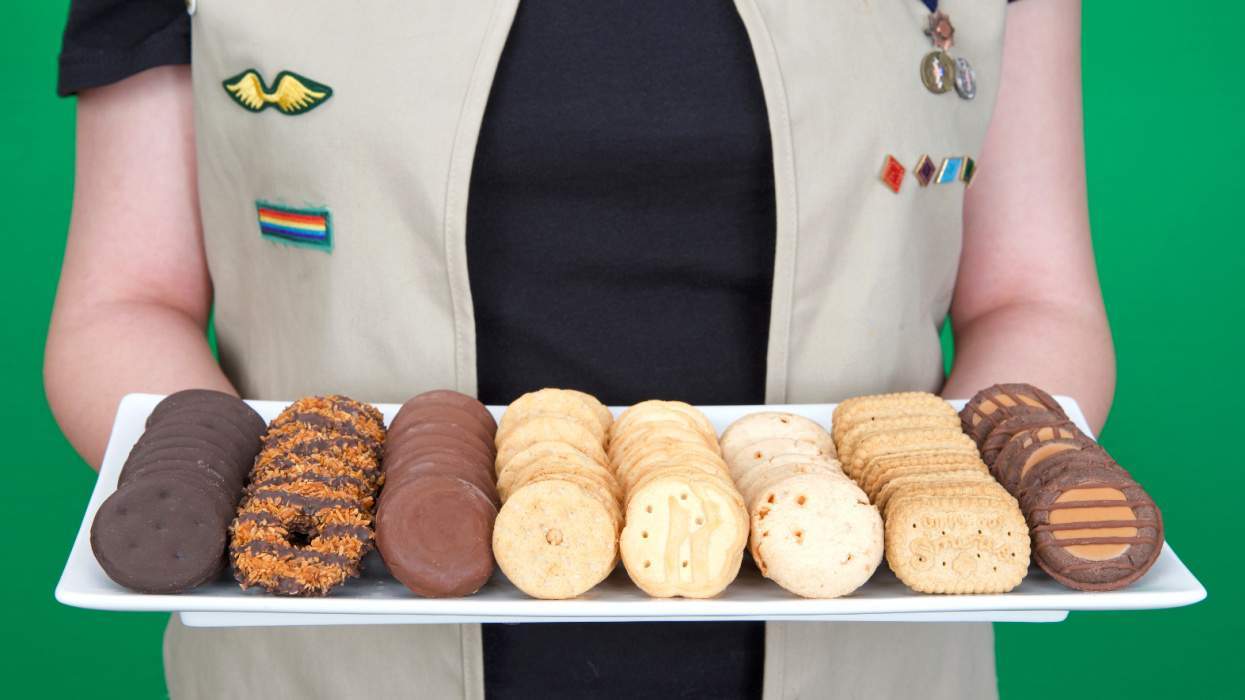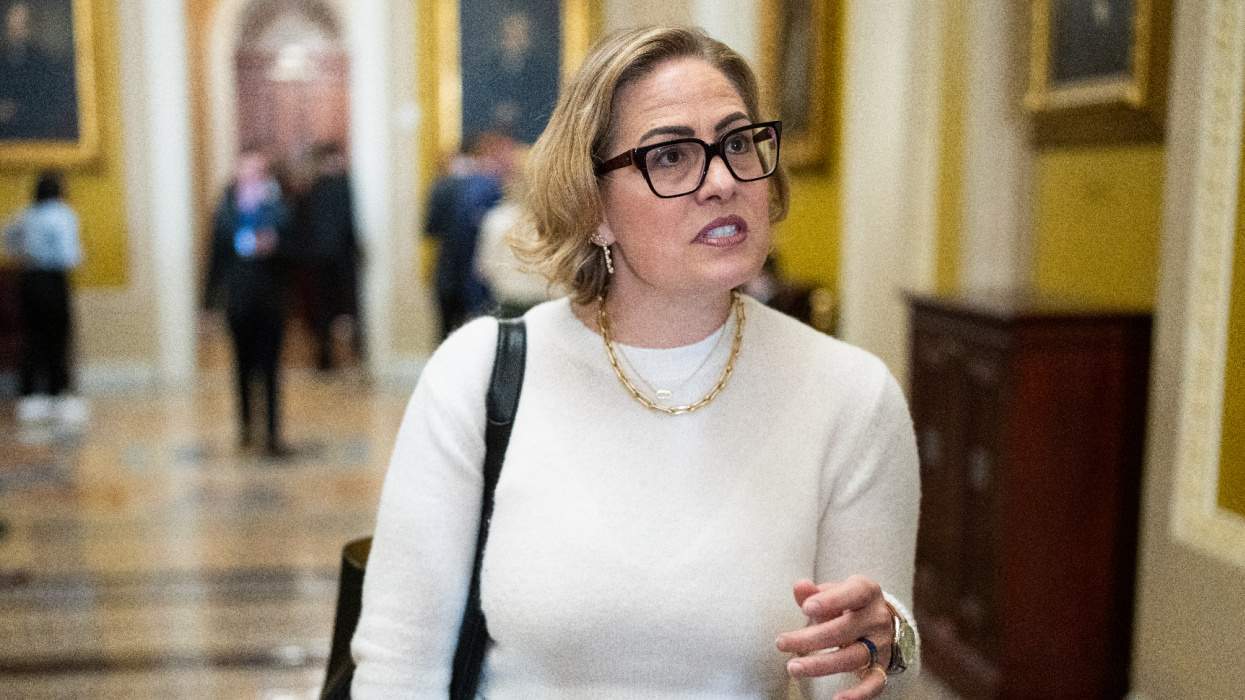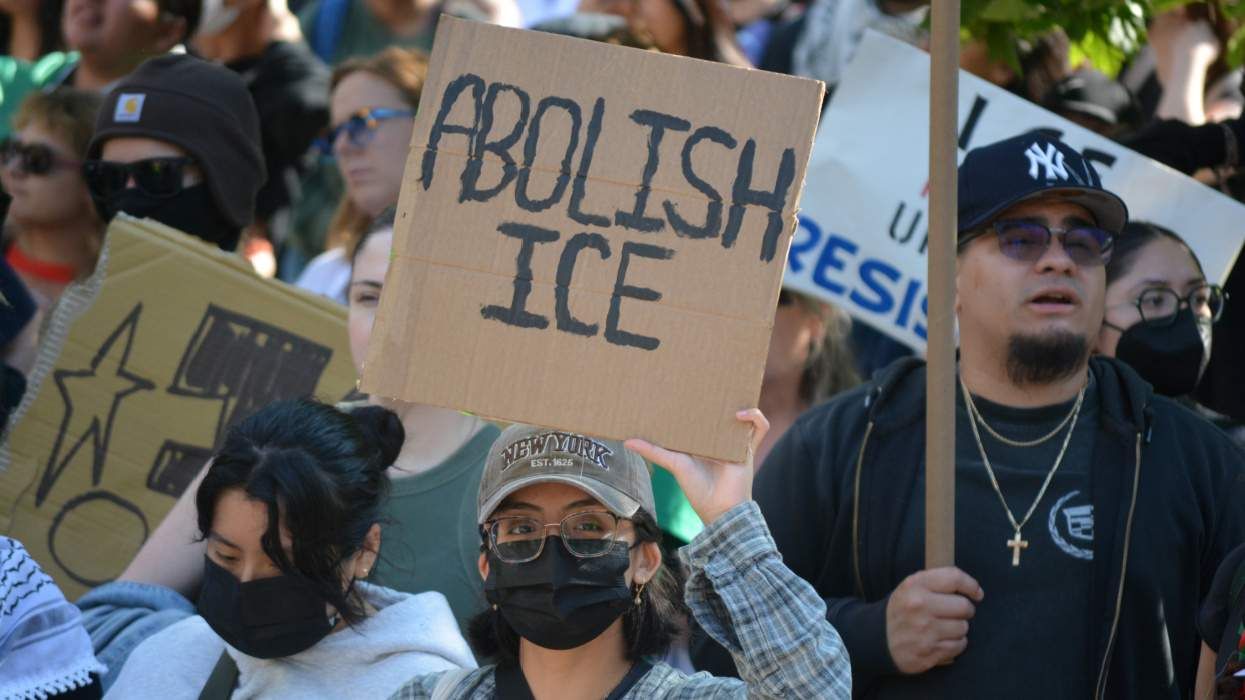The country is not in a good place, but thank goodness we have Janet Mock. Since coming out as trans in a 2011 Marie Claire article, the journalist has morphed into one of the country's most high-profile and persuasive LGBT activists. Now with two books under her belt -- Surpassing Certainty: What My Twenties Taught Me was released earlier this year -- Mock is trying her hand at something completely new: acting. On Monday night, Mock plays herself on VH1's Daytime Divas, a (slightly) fictionalized version of The View. We were supposed to speak with Mock about her acting debut, but Mock being Mock, our conversation veered into everything from beauty as privilege to the racism that propelled Donald Trump to the White House.
The Advocate: Hi there, Janet. First off, tell us about your role on Daytime Divas.
Mock: I'm playing myself. I'm filling in as a cohost for the entire week of the lunch hour. This would be my acting debut.
Is this the start of something?
I'm definitely open. It's an interesting story -- I was writing a cover story for Marie Claire on Nicki Minaj and one of my secondary interviews was her best friend. She was telling me she was working on a show called Daytime Divas with Vanessa Williams. I read Star Jones book, which the show plays off of, and I made a side comment that I'd die to work along Vanessa Williams. She said I'll pitch you in the writers' room. Two months later, I got an ask and it was from a writer on the show and she asked, "Would you be down to do this?" I just kept myself open even though I've never done this work before, and I took some comfort in playing myself. I'm open to possibilities, but probably more eager to engage as a writer on a show or creating a scripted project.
You have a second memoir out. Do you see it as a sequel to Redefining Realness?
Surpassing Certainty is a continuation of my story, not a sequel. I was always eager to tell the years of my story when I was younger and I chose, after transitioning in middle school or high school, to not be super forthcoming about my story of becoming, my story of transition.
So when I moved to New York City as a young grad student, I wanted the freedom to have all the things everyone had access to, which were a great education, a safe home environment, internships, jobs, friendships, relationships. And what enabled me to have that largely was the way in which I look, because I can often blend in as a cis woman; oftentimes my trans status is not checked. So holding my story close all those years enabled me a safety that a lot of trans people don't have access to -- but a lot do have access to it. So I thought it was necessary to tell this 20-something experience, shake up the genre of memoir, and tell this added layer of what it means to conceal and reveal ourselves as we're trying to make our way.
Talk about the pressure on famous trans people to discuss their transitions.
One of the things that I've talked about in the work that I do is that our stories are our own and we should have the agency to tell them to whomever we want, whenever we want. We also have to be conscious that being able to tell one's story involves a lot of compromises and that involves staying alive and being safe.
My first book, Redefining Realness, really centered around my coming of age and transition; I was very open about it. In Surpassing Certainty, it's about choosing to not lead with the fact that I'm trans. My transness has so much more to do with just my transition -- choosing to hold those stories close until I felt I could trust the people around me to hold that information. So for any trans person, I champion them being able to own their stories and their truth and not feel compelled to say anything that they're not comfortable to say in a culture that's not yet comfortable ensuring trans people are safe when they're out and people know their identities.
You recently wrote an essay about beauty as a privilege. The issue of privilege is usually a controversial one, especially within LGBT circles. Why?
All communities struggle [with the idea of privilege] and the only way we're going to dismantle these hierarchies that allow some people in and push some people out is by talking about our experiences with being able to have access. Whether that means we're able-bodied, we're documented, we can blend in, we're attractive, unattractive, normative, fat, skinny, whatever it is that allows us to have access to space and being able to not have access to space, which is the experience of oppression.
So I see privilege and oppression as a part of talking about anything I do. It think it's important for us to acknowledge our positions in the world. For me, being able to be seen and heard on all these levels, a lot of that has to do with the access i have -- the education I have, the health care I had as a young person, all of these disparate parts of my experience. I think people make it about themselves in a way, like if I point it out, people are going to think I'm not a good person because I have privilege. That's not the point. The point is to acknowledge the truth of how the world works. And the world works in ways that push some people out and let some people in. So we have to do the work of acknowledging our experiences along that kind of access and hierarchy.
We're six months into Donald Trump's presidency. What's your mind-set?
I was outraged long before he won. So it wasn't just January 20 [that I became upset with Trump]. Like most people, I wasn't shocked that a lot of white folk who felt they didn't have what they wanted in the world voted for him. All the things he said about people who were not white, people who were poor, people of color, queer trans people, disabled folk [were terrible]; so for me in this time period, we've seen him show who he is, and we also in a sense, the people who supported him, we saw [what] a lot of our fellow citizens think and believe. And part of their beliefs are that some of us are more deserving of us being here and some of us are not.
It's deeply discouraging that that's happening. At the same time, we've also seen a great coming together of a lot of folk who do not believe that. People who do not believe in him and his administration and believe we're a country of immigrants and folk who should be able to have access to live freely, love freely, be who we are, and to also band together and resist. The great Resistance movement has always kept me encouraged, and resistance has been here long before this election, long before Trump decided to enter politics. The queer trans movement started because of resistance, rebellion, rioting; because of saying we would not be contained, whether at Stonewall, at prisons, or at schools. So the work continues. For me as an activist and storyteller, I know the work continues and we're the ones figuring out what the story and narrative will be.
Do you think Trump's win -- whether legitimate or not -- opened people's eyes to the discrimination that still exists in this country?
Well, I definitely did not want him to win. A lot of us already knew that that ugliness existed because we see it in our everyday lives. I think there are a lot of white people who did not see that and believed this country was there for them and showed up for them; they believed in the good of this country. A lot of folk were not surprised, though. I was not surprised by that ugliness, because I see it every day. Trans and people of color are oppressed every single day; there are not many protections for us. So I'm not surprised by it. But for many people, it was a wake-up call for where we are as a country.















Charlie Kirk DID say stoning gay people was the 'perfect law' — and these other heinous quotes
These are some of his worst comments about LGBTQ+ people made by Charlie Kirk.